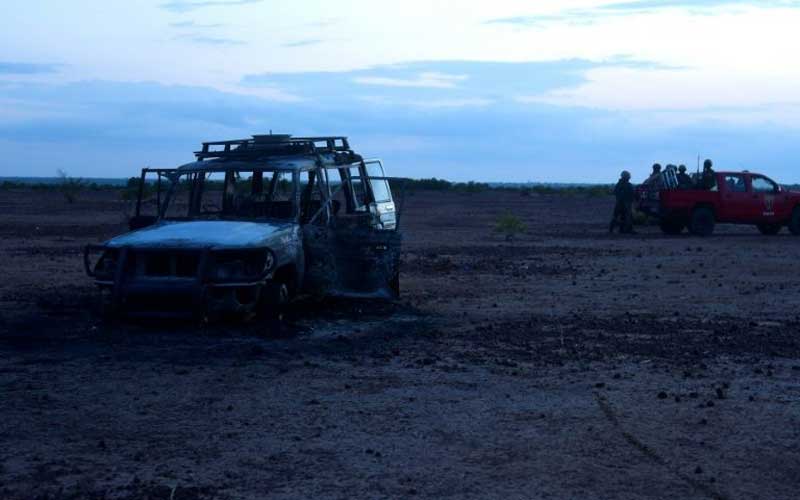×
The Standard e-Paper
Fearless, Trusted News

The aftermath of an attack in Niger's Koure that killed six French aid workers, sparking Paris to issue a strong travel warning. [AFP]
"I am furious at France," Mahamane Rabiou Bachir said over the blaring sounds of traffic in Niger's capital, Niamey.